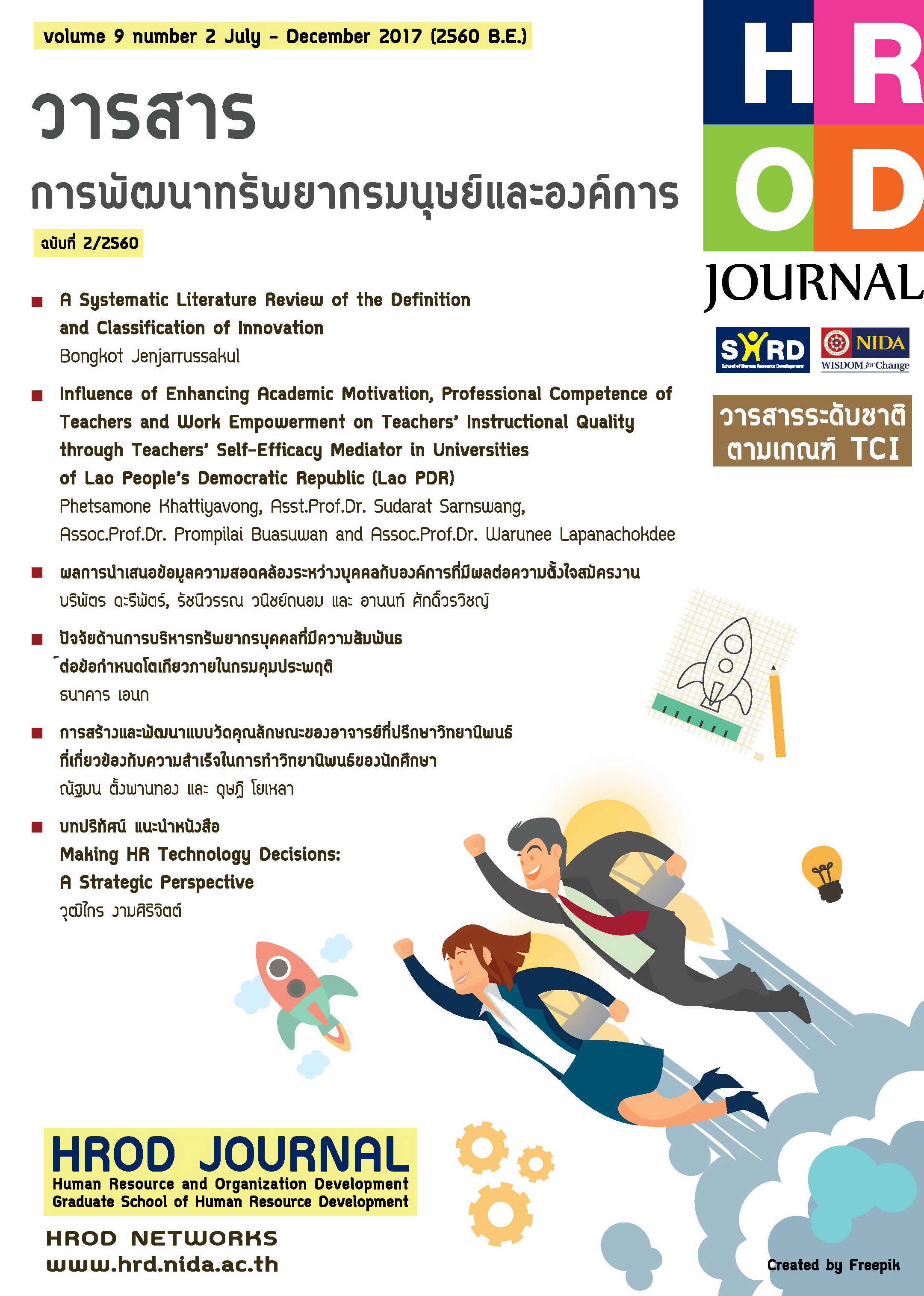Influence of Enhancing Academic Motivation, Professional Competence of Teachers and Work Empowerment on Teachers’ Instructional Quality through Teachers’ Self-Efficacy Mediator in Universities of Lao People’s Democratic Republic (Lao PDR)
Main Article Content
Abstract
The purpose of this research was to develop a causal relationship model that influences the teachers’ instructional quality of university teachers in the Lao People's Democratic Republic (Lao PDR) and to examine the consistency of the model developed with empirical data. This quantitative research used questionnaires as research instrument. The sample was 351 teachers, from four Lao universities. The SPSS program was used to analyze the data for basic information and the LISREL program was used to analyze the causal relationship model. The research results were: 1) Enhancing academic motivation had a direct positive influence on the teachers’ instructional quality (TIQ) of 0.23 and an indirect influence through the teachers’ self-efficacy (TSE) of 0.18. Professional competence of teachers had a direct negative influence on TIQ of - 0.26 and an indirect influence of 0.36. Work empowerment had a direct positive influence on TIQ of 0.27 and an indirect influence through TSE of 0.21. Work empowerment had a direct effect on TSE of 0.44 and TSE had a direct positive influence on TIQ of 0.47. 2) The causal relationship model was very well fitted with the empirical data (x2 = 62.95, df = 116, x2/df = 0.54, P-value = 0.99, GFI =0.98, AGFI = 0.97, SRMR = 0.026, RMSEA = 0.000). The model could explain the variance of the Teachers’ Self-Efficacy (TSE) by 39% and the variance of the Teachers’ Instructional Quality (TIQ) by 78%.
Article Details
1) The content of article in HROD journal is the author’s wholly responsibility to research, analyze, summarize, compile, and reference data. The editorial department will not be responsible in anyway.
2) The submitted articles in HROD journal must be unpublished before and must not be currently under consideration for publication elsewhere. If it is detected for its repetition, the author must be responsible for infringement of copyright.
3) Authors will be asked to transfer copyright of the article to the Publisher. The article is prohibited to reproduce all or part of the text, unless allowed.


